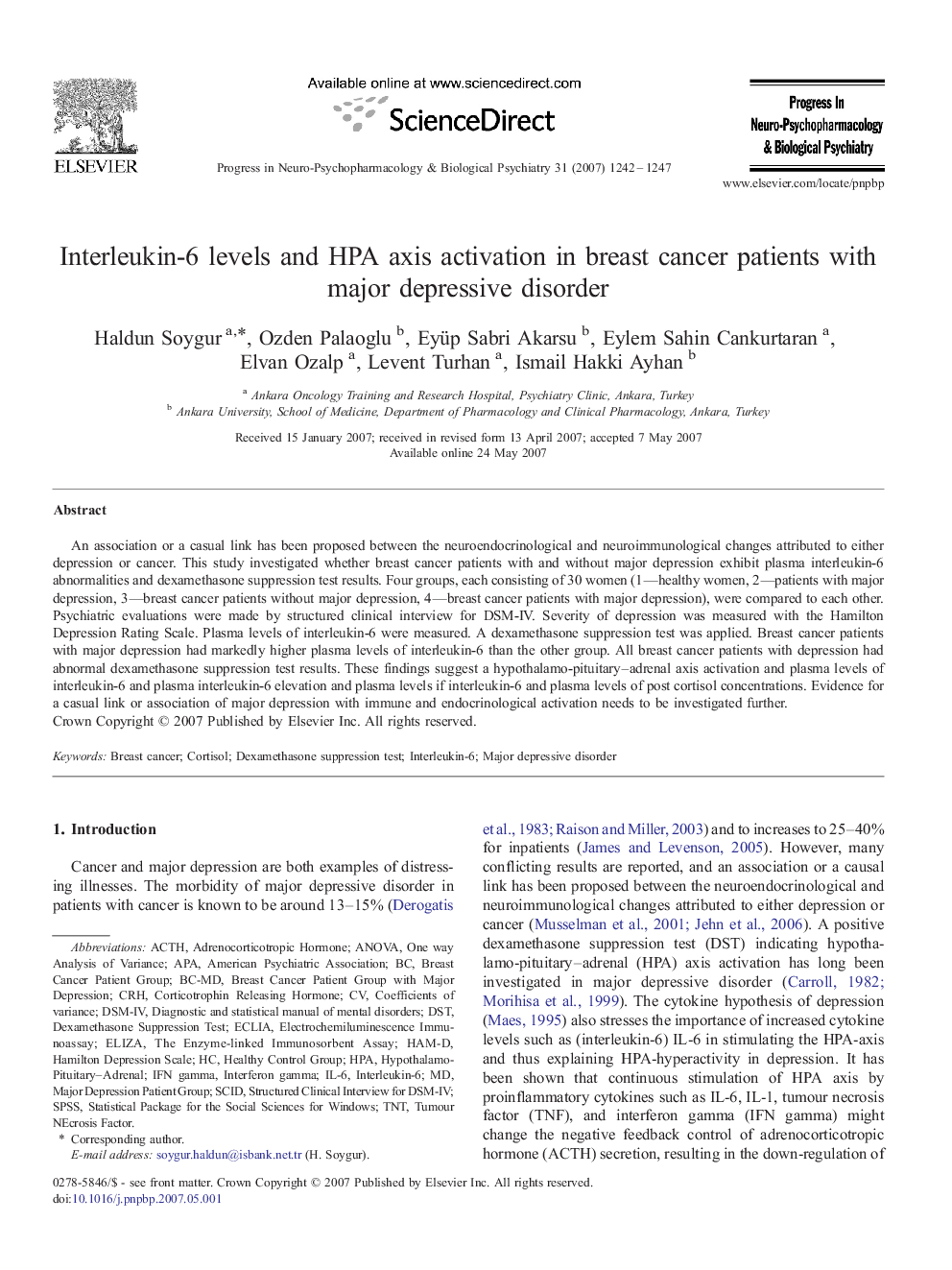| Article ID | Journal | Published Year | Pages | File Type |
|---|---|---|---|---|
| 2566127 | Progress in Neuro-Psychopharmacology and Biological Psychiatry | 2007 | 6 Pages |
An association or a casual link has been proposed between the neuroendocrinological and neuroimmunological changes attributed to either depression or cancer. This study investigated whether breast cancer patients with and without major depression exhibit plasma interleukin-6 abnormalities and dexamethasone suppression test results. Four groups, each consisting of 30 women (1—healthy women, 2—patients with major depression, 3—breast cancer patients without major depression, 4—breast cancer patients with major depression), were compared to each other. Psychiatric evaluations were made by structured clinical interview for DSM-IV. Severity of depression was measured with the Hamilton Depression Rating Scale. Plasma levels of interleukin-6 were measured. A dexamethasone suppression test was applied. Breast cancer patients with major depression had markedly higher plasma levels of interleukin-6 than the other group. All breast cancer patients with depression had abnormal dexamethasone suppression test results. These findings suggest a hypothalamo-pituitary–adrenal axis activation and plasma levels of interleukin-6 and plasma interleukin-6 elevation and plasma levels if interleukin-6 and plasma levels of post cortisol concentrations. Evidence for a casual link or association of major depression with immune and endocrinological activation needs to be investigated further.
